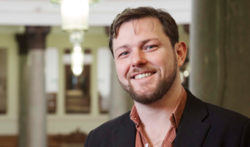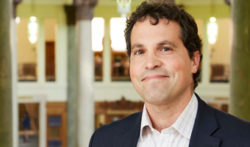People

Dr Sean Dyde
Sean is a Marie Skłodowska-Curie Research Fellow at the University of Leeds. He has completed study and worked at the University of Melbourne, the University of Sydney, the University of Cambridge and the Max Planck Institute for the History of Science, Berlin.
His current project examines how people understood mind and brain in Britain over the course of the eighteenth- and nineteenth centuries, looking towards the most profound of questions: what does it mean to be human? This not only includes the history of medicine, physiology and neurology, but also metaphysics, aesthetics, jurisprudence, ethics, politics, economics, literary criticism, language studies and history-writing itself. Armed with these histories, he hopes to draw connections between the scientific past and our scientific present, showing how some fundamental dilemmas have been ignored, how the solutions of our past may become the traps of our future.

Professor Greg Radick
Greg is Principal Investigator on the Making Biological Minds Project, as well as an historian and philosopher of science whose work deals mainly with biology and the human sciences. He is Director of the Leeds Humanities Research Institute, Editor-in-Chief of Studies in History and Philosophy of Biological and Biomedical Sciences, and Vice-President of the British Society for the History of Science. He is also currently Chair of the Education Committee of the International Society for the History, Philosophy and Social Studies of Biology.
His publications have centred on Darwinism, genetics and the sciences of mind and behaviour. His book The Simian Tongue: The Long Debate about Animal Language (2007) was awarded the 2010 Suzanne J Levinson Prize from the History of Science Society for best book in the history of the life sciences and natural history. When awarding the book, the Committee noted, 'Radick has produced an interdisciplinary synthesis weaving together experimental designs and theoretical arguments as well as biographical and institutional perspectives. The result is a richly contextual multi-layered account presented as convincing narrative. Radick's work touches many biological and anthropological disciplines and research fields. It thus opens up vast new lands for future historians to map and explore. As a history of an ongoing scientific debate it also engages historians of science and working scientists alike.'
More information and contact details can be found on Greg's University Page.
This project has received funding from the European Union’s Horizon 2020 research and innovation programme under the Marie Skłodowska-Curie grant agreement No 703293.
